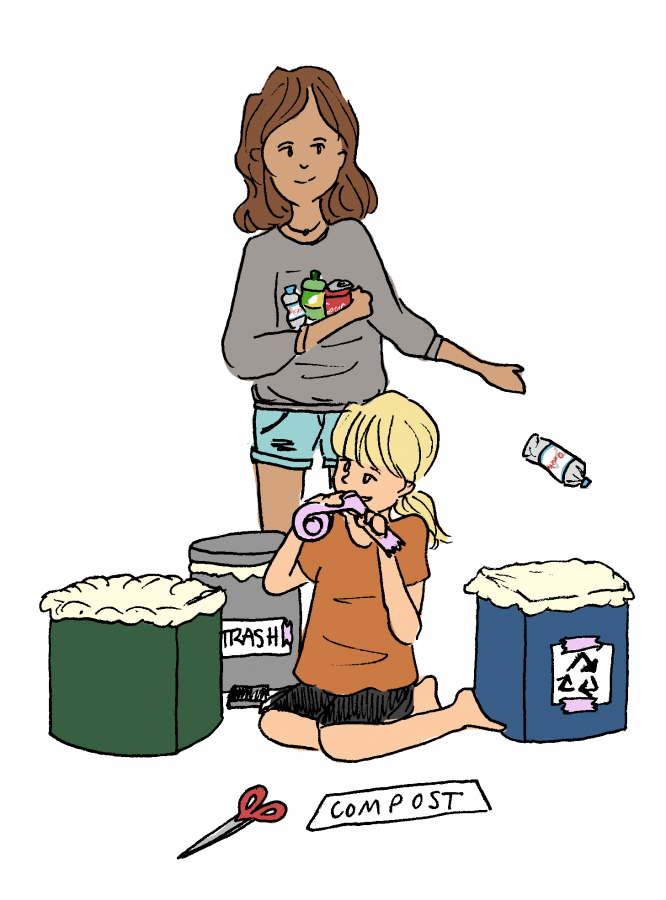The University of Texas at Austin’s goal of diverting 90 percent of waste from landfills faces increasing pressure as we approach the 2020 deadline. Forty-five percent of the campus’ 9,000 tons of waste is compostable material, but less than one-third of that waste is properly disposed, according to Robert Moddrell, resource recovery manager. The rest that is thrown to landfills breaks down to create harmful methane gas that negatively contributes to climate change. Though each action is minute, students have a variety of ways both on and off campus to assist the University’s composting efforts and curb greenhouse gas emissions.
The University currently uses third parties to compost organic waste, so when a certain amount of non-compostable items “contaminate” a bag, that whole bag is thrown away to a landfill where it will release methane. Moddrell said the culprit of contamination is excess packaging. To prevent tons of compostable material from being contaminated, students can start with less wasteful purchase decisions on campus.
For example, Moddrell explained how bags from restaurants on campus encourage students to put their waste — compostable, recyclable, or otherwise — in one bag that is then put in the trash. A strong first step for students to help compost on campus is to abstain from single-use bags, cups and utensils. This would not only increase the likelihood of properly separating compostable waste but would also decrease the total amount of waste produced. We constantly hear the mantra “reduce, reuse, recycle” around sustainability efforts, and there is good reason “reduce” is the first in the list. “There are so many things that we buy everyday that we didn’t need to buy,” Moddrell said. From cups to food containers, student use of reusable items will also make composting more effective on campus.
Composting in an on-campus dorm may seem troublesome, but it is far from impossible. Every student living on campus has a freezer well-equipped for composting. There is no smell, and the process is simple: Place a large tupperware container in the freezer, place any organic waste in it and then empty it when necessary. The compost bins around Jester Dormitory and the Unions are convenient places to dump a night’s worth of coffee grounds if the freezer space is occupied by a pint of ice cream.
Similar methods can be used for off-campus residents, too. Many apartments and houses have outdoor spaces where a larger compost bin can be placed for excess food waste. A larger bin would reduce the number of trips to the handful of downtown locations that accept compost.
Other opportunities to increase UT’s composting are everywhere. Last week, my RA hosted an end-of-the-year dinner party where she catered food and provided plates, utensils and napkins. There was only one container for the waste we were going to produce, so I asked the other RA on my floor to grab two more large paper bags for recycling and compost. I hauled each bag down to the bins in Jester City Limits after I made sure the recyclable containers, the compostable waste, napkins, plates and the non-reusable utensils were all separated.
I felt uncomfortable in my “extra” efforts as questioning eyes watched me write titles on each bag. Over the course of the dinner though, I saw friends asking one another where to toss everything they did not devour.
Talk to friends about composting. Awareness will be the most important tool for the University’s composting efforts. Any number of bins serve no purpose when students do not know what they are for.
Kosinski is a journalism freshman from San Rafael, California. Follow him on Twitter @willkosinski.





















